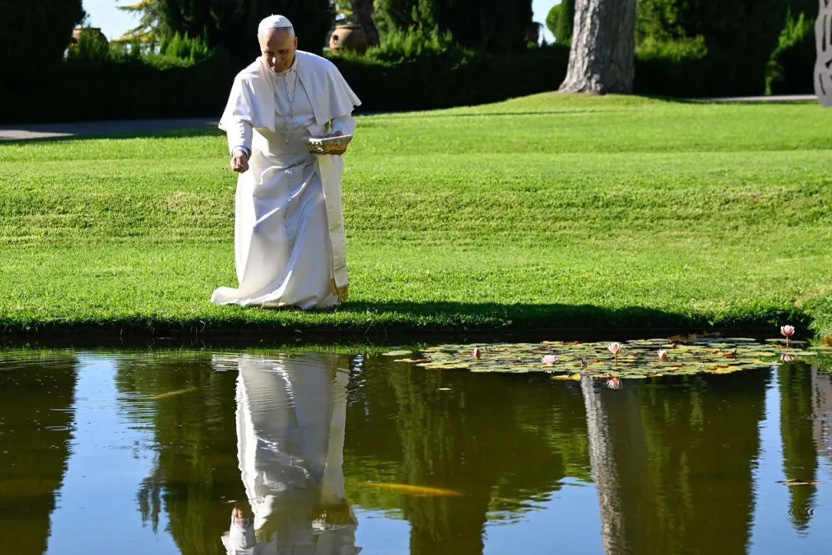
As the COP30 negotiations enter a decisive week in Belém, Brazil, Pope Leo XIV issued a stark warning on Monday, deploring the lack of “political will from some leaders” and urging governments to deliver “concrete action” to confront the accelerating climate crisis.
In a video message addressed to religious leaders gathered on the sidelines of the UN climate talks, the American-born pontiff described the Paris Agreement as “the most powerful tool we have to protect people and the planet,” before adding: “What is missing is the political will of some.”
The Vatican released the message as church leaders from across the global South convened in Belém, while UN negotiators resumed tense discussions aimed at turning years of pledges into measurable cuts in greenhouse gas emissions and meaningful support for communities most exposed to climate disaster.
The pope portrayed the Amazon rainforest—host region of this year's summit—as “a living symbol of Creation in urgent need of protection.”
“Creation cries out through floods, droughts, storms and relentless heat,” he said. “One in three people around the world lives in great vulnerability to climate change. For them, global warming is not a distant threat—and ignoring it is a denial of our shared humanity.”
A closing window
COP30 enters its final stretch this week as ministers arrive to navigate deep divisions on several core issues, from the phase-out of fossil fuels to climate finance and trade measures. Five days remain before the scheduled close of the summit, though negotiators caution that major sticking points persist.
“There is still time to limit global warming to under 1.5°C, but the window of opportunity is closing,” Pope Leo XIV warned, renewing his defense of the 2015 Paris climate accord.
The agreement—whose withdrawal was announced once again by U.S. President Donald Trump—aims to keep temperature rise “well below” 2°C above pre-industrial levels and ideally to 1.5°C.
Calling the Paris Agreement “the most effective tool to protect people and the planet,” the pope lamented insufficient efforts by certain unnamed world leaders. “What is lacking is political will,” he said. “True leadership means committing at a scale that can genuinely make a difference.”
He urged the global community to send “a clear signal of unity”: nations standing firmly behind the Paris Agreement and renewed multilateral cooperation on climate action.
A papacy shaped by ecological urgency
Since his election in May, Pope Leo XIV—born in Chicago and a former missionary in Peru for two decades—has positioned ecological responsibility at the heart of his pontificate. Last month, speaking at a climate conference near Rome, he called for a global “ecological conversion” to support vulnerable populations already suffering from the impacts of extreme weather.
This year also marks the tenth anniversary of Laudato Si’, the landmark encyclical by Pope Francis that helped place the moral dimension of climate action at the center of global debate.
Uncertain outcomes at COP30
Held without the participation of the United States, COP30 faces unresolved disagreements on ambition, finance, and trade-related climate measures. Some countries are pushing for a negotiated roadmap to phase out fossil fuels—one of the most contentious issues in the talks.
UN climate chief Simon Stiell welcomed the pope’s intervention, calling it “a powerful message.”
“His words encourage us to keep choosing hope and action, to honor our shared humanity and support communities across the world already suffering from floods, droughts, storms, and unrelenting heat,” he said.


Comment